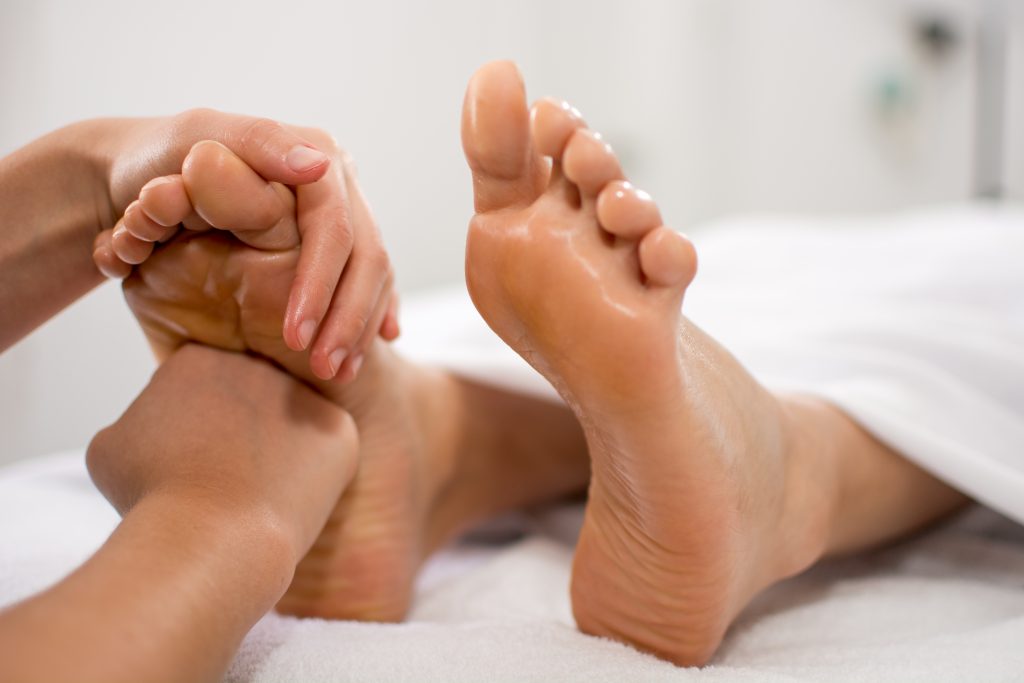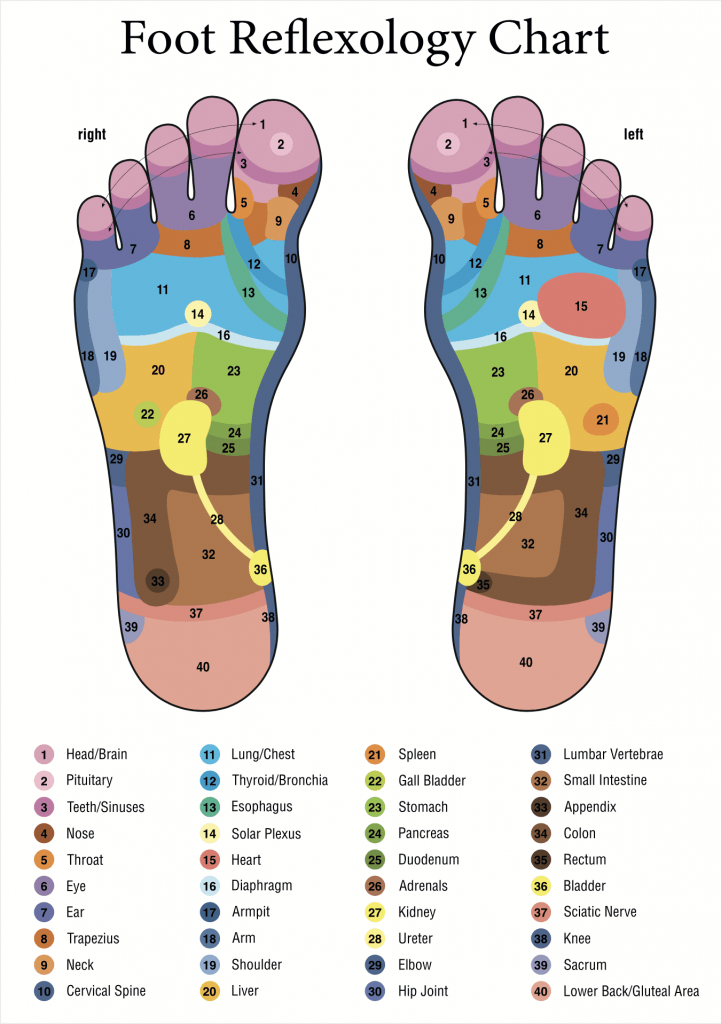Reflexology is based upon the principle that there are energy zones that run throughout the body and there are reflex areas in the feet and hands that correspond to all the major parts of the body. It is a complementary therapy that involves applying pressure to specific points on the feet or hands, which correspond to different organs and systems in the body.
This practice aims to promote health and well-being by stimulating these reflex points.
Benefits of Reflexology:
- Increased circulation: by stimulating blood flow, reflexology may enhance the delivery of oxygen and nutrients throughout the body, potentially improving overall health.
- Improved relaxation: may help alleviate stress and induce deep relaxation, contributing to overall well-being.
- Sense of well-being
- Supports the immune system
- Elimination of toxins from the body
- Lowers Blood Pressure.
- Cancer Relief.
- Detoxification.
- Improve tension, stress and circulation associated with enhancing your own fertility.
- Beneficial in supporting the symptoms in Pregnancy.
- Enhanced Sleep Quality: The relaxation effects of reflexology might contribute to better sleep patterns, aiding those experiencing insomnia or disrupted sleep.
- Digestive Support: Some individuals report relief from digestive issues, such as constipation, through reflexology sessions.
- Hormonal Balance: Reflexology might aid in balancing hormones, which can be beneficial for individuals experiencing issues related to hormonal imbalances.
- Immune System Boost: By promoting overall relaxation and balance, reflexology may support the immune system’s function, potentially reducing the frequency of illnesses.
- Anxiety and Depression Alleviation: Reflexology may help reduce symptoms of anxiety and depression, promoting emotional balance and mental health.
Reflexology can help alleviate many problems, such as colds, sinusitis, migraines, asthma, sciatica and insomnia. It relaxes, reduces stress and detoxifies the body and can be used effectively as a preventative form of health care. It can bring a balance to conditions such as hormonal imbalances, digestive problems, back pain and headaches.
Problems Reflexology can help with:
- Migraine
- Stress, anxiety, depression
- Back pain
- Arthritis
- Hormonal imbalances/PMS
- Menopause Symptoms
- IBS/digestive disorders
- Stress-related conditions
- Sleep problems
- Fertility
Who Provides Reflexology at Cheshire Lasers?
At Cheshire Lasers Clinic, we have two highly experienced Reflexologists:
What does Reflexology involve?
A Reflexology treatment (with or without specially selected aromatherapy oils) lasts for approximately 60 minutes. The first treatment, however, can take up to 90 minutes as a full client consultation occurs before the treatment can commence.
During a typical reflexology session, the reflexologist will take a detailed medical history. Sessions are usually performed in a comfortable chair or couch. The client will be asked to remove footwear and socks. The practitioner will make a visual and tactile examination of the area to be worked on before beginning the precise reflexology movements. The particular types of movements involved require the application of appropriate pressure using the thumb and fingers.
Why may I benefit from Reflexology?
Reflexology may be beneficial in restoring balance and harmony in the body and releasing tension. Practitioners believe that it helps facilitate a deep state of relaxation, calm emotions, and produce a serene mind. Research studies support many of these benefits.
Many people describe a profound sense of relaxation and increased energy following their session. In addition, specific studies indicate that reflexology may reduce pain and anxiety.
Reflexology is growing increasingly popular across Europe and Asia as both a complement to other treatments and as a preventive measure. One example is Denmark, where various municipalities and companies have employed reflexologists since the early ’90s.
According to several studies, this practice in Denmark has resulted in reduced sick leave and absenteeism (and significant economic savings for the employers). Employees have consistently reported a complete or partial improvement in conditions where they sought reflexologists’ help and even relief for additional problems related to stress. In one municipal district, almost one-third of the employees reported greater satisfaction with their jobs after completing six sessions with a reflexologist.
View the reflex areas in the feet and their corresponding parts of the body


